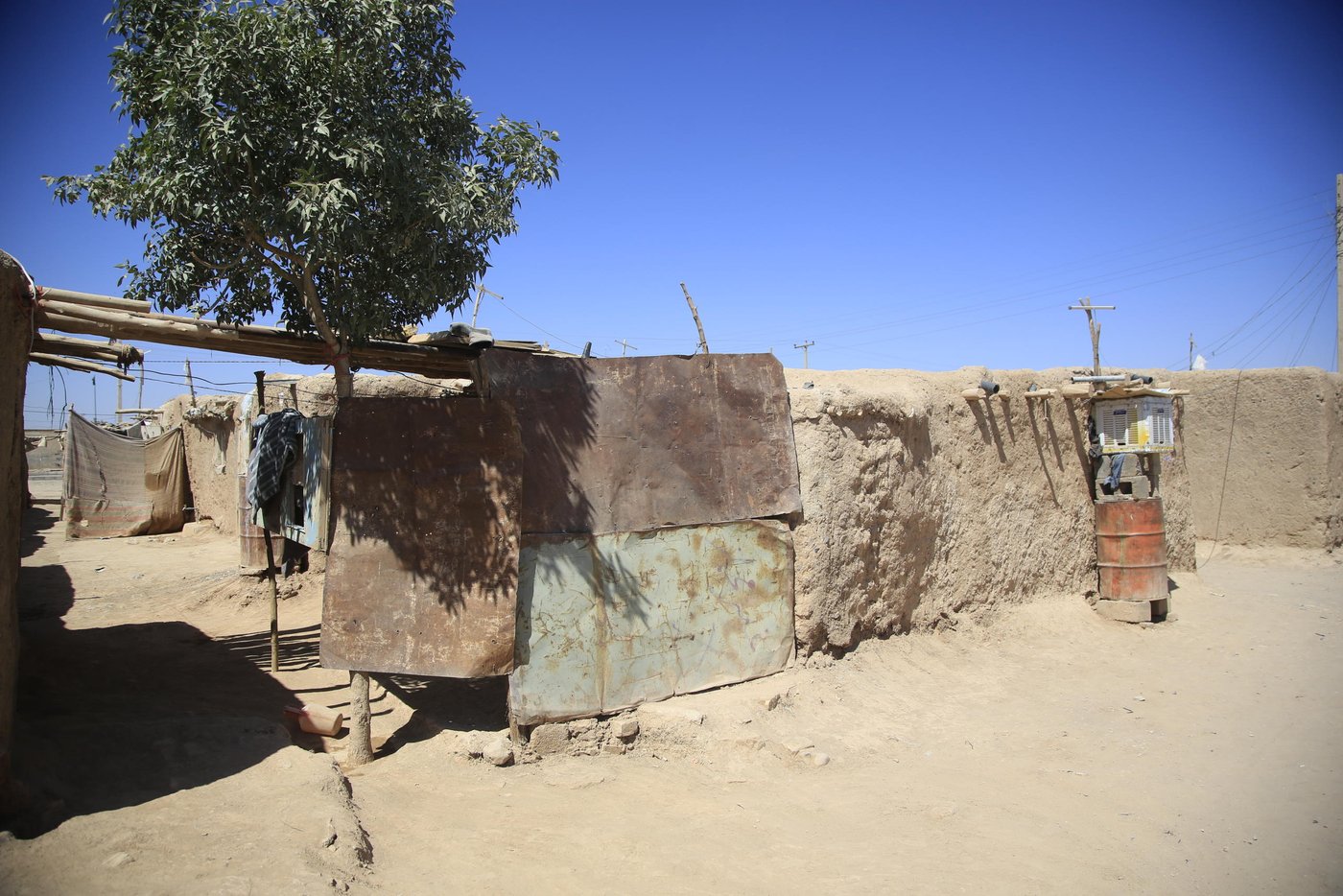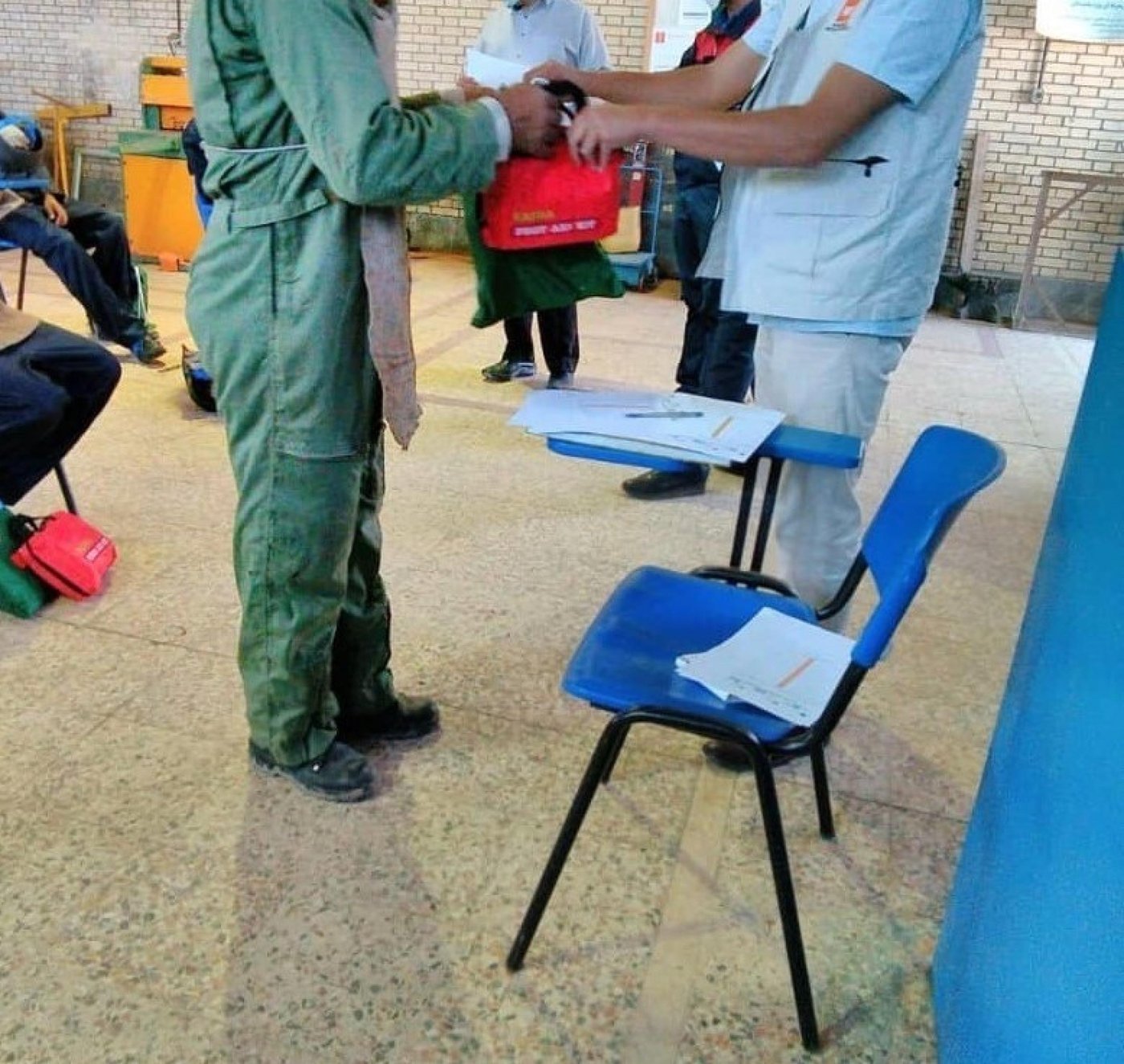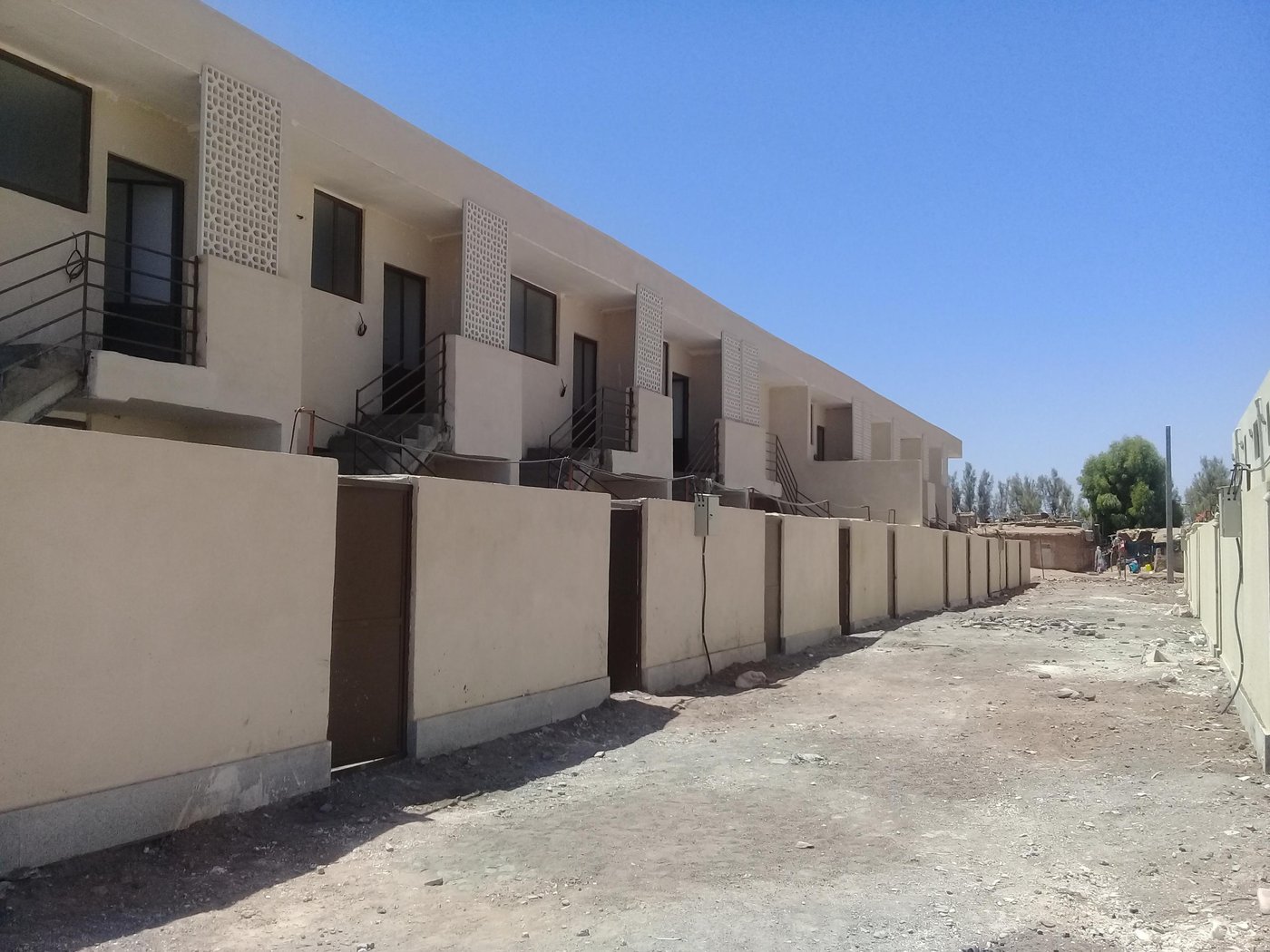“After coronavirus, the job opportunities decreased. I used my savings to meet our basic needs and could not buy the work tools I needed. I was hoping to become self-employed and also employ a few other people to work with us,” says Mostafa, an Afghan refugee man in his late twenties born and raised in an Afghan refugee settlement.
NRC works to support refugees and displaced people in over 30 countries around the world, including Iran. Support our work today
Busy Rafsanjan settlement in the south-east of Iran, which hosts about 5,500 Afghan refugees, was quarantined twice in 2020 to prevent the spread of the virus. Quarantine meant very few or no job opportunities for Afghans, most of whom had been working as daily labourers in the construction or agriculture sectors.
“Due to the coronavirus, we were unable to leave the settlement for a long time. Jobs were on hold,” says Ahmad*, another Afghan refugee in his late twenties living in the same settlement.
Previously someone could be sure to find work almost every day. Now we can hope to find work maybe only every third day.Ahmad*, a refugee living in Rafsanjan settlement
After the quarantine was lifted, it was still difficult to find work outside the settlement. Fewer jobs were available and employers were more careful about employing workers from the settlement due to the stigma associated with the virus.
“The job opportunities have decreased outside of the settlement. Previously someone could be sure to find work almost every day. Now we can hope to find work maybe only every third day,” says Ahmad*, who works in the field of plumbing and electrical wiring.
A new housing project
Job opportunities inside the settlement are also scarce. Fortunately, there were some ongoing Norwegian Refugee Council (NRC) projects which made the situation slightly better for a few labourers. Afghan refugees could gain an income by working on these projects while following health protocols.
From 2018 to 2020, NRC implemented a project to improve the living conditions of Rafsanjan’s residents, with generous support from the Danish International Development Agency (DANIDA).

The project includes the provision of 152 housing units, connected to the sewage system, for settlement residents. Refugees who were participating in vocational training courses were encouraged to work and practise their skills in the final stages of the project, while also earning an income. The training courses took place in collaboration with Iran’s Technical and Vocational Training Organization (TVTO) and were also funded by DANIDA.
When Ahmad* and Mostafa saw a banner announcing vocational training courses, they took the opportunity to increase their knowledge and skills. Ahmad* enrolled in an electrician’s assistant course, while Mostafa enrolled in an advanced plumbing course to complement the basic course he had already taken.
Before, I used to work from experience, but in these classes I learned things based on formulas, principles and rulesMostafa, a refugee living in Rafsanjan settlement
“I am interested in technical work. I am an electrician. That is why I chose this course – to learn more and become more skilful in my job. I also wanted to have a certificate to present when I go somewhere for work,” says Ahmad*.
Gaining skills while earning money
Ahmad* and Mostafa found the courses useful as they gained skills and knowledge they did not have before.
“Before, I used to work from experience, but in these classes I learned things based on formulas, principles and rules. I even corrected some of my previous work based on what I learned in the classes,” says Mostafa, with enthusiasm.
“Being involved in NRC’s project was a good opportunity in terms of gaining work experience,” adds Ahmad*.
Mostafa and Ahmad* had the opportunity to get involved in the NRC housing project while doing their training. The contractor was looking for workers and offered them jobs to help connect the housing units to the sewage system. This meant Mostafa and Ahmad* could apply the skills they had learned to a real project and also earn an income.

“The impact of the training courses was so good that the contractor would leave us to do the work without constant supervision. I used to ask my trainer how to work with the tools, but after the training I could apply what I had learned. The contractor was very satisfied with our work,” says Mostafa.
Next step: self-employment
Even though Ahmad* and Mostafa had the opportunity to take training courses and apply their new skills, more sustainable solutions are needed. For example, if Afghan trainees were provided with vocational tools, which NRC is planning to do in 2021, they would be able to use the skills and knowledge they had acquired and find a reliable income.
“When I was involved in the NRC project, the tools belonged to the contractor. I did not have tools of my own. If I had done, I could have got this job for myself and created income for myself and others,” Mostafa says.
I want to work for myself and employ othersMostafa, a refugee living in Rafsanjan settlement
Having the necessary tools will help Afghans who have received vocational training to be open to a wider range of job offers and eventually become self-employed, a dream Ahmad* and Mostafa both share.
“The job opportunity is good for me, but because I do not have my own tools, I cannot accept certain jobs. For example, yesterday I had to turn down a job offer because I did not have the sufficient tools. Sometimes the employer has the tools, but sometimes we should have them and we cannot afford to buy them,” says Ahmad*.
“I want to work for myself and employ others. This way my situation will improve as well as the situation of others who have skills but cannot find a job,” says Mostafa.
***
DANIDA’s support to NRC Iran
In addition to the provision of 152 housing units in Rafsanjan settlement, between 2018 and 2020, NRC supported 77 Afghan refugees through an integrated approach, with generous support from DANIDA. The project brought together the provision of training, access to employment opportunities and legal assistance, which means that Afghan refugees received vocational training and were supported to find a job to put their skills into practice, while also receiving legal assistance and counselling on exercising their right to work and obtaining the required work permits.
In 2021, with ongoing support from DANIDA, NRC will continue this integrated approach. An additional 36 Afghans refugees living in Bardsir settlement, also in Kerman, will be supported with the above and will receive a vocational toolkit, which was identified as a key need. NRC will then support them to work on a project expanding classrooms and school water and sanitation facilities.
NRC in Iran
Since 2012, NRC Iran has assisted displaced Afghans as well as their Iranian host communities. We work to improve protection and access to basic humanitarian services across nine provinces and coordinate closely with the Bureau for Aliens and Foreign Immigrants Affairs, under Iran’s Ministry of Interior, and NRC operations in Afghanistan.
Despite the challenges brought by Covid-19, our teams have been able to adapt, respond, and continue supporting vulnerable people during the pandemic. In 2020, NRC reached over 120,000 individuals (a 33 per cent increase from 2019), supporting both Afghan women and men as well as vulnerable Iranians affected by natural disasters.
Read more about our work in Iran
* Indicates that name has been changed to respect the individual's wish for anonymity.


